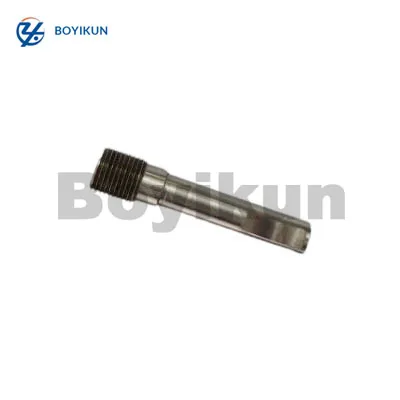What Are Precision Turned Parts?
2024-09-20
Precision turned parts are components that are manufactured through a machining process called turning, which involves rotating a workpiece while cutting away material to achieve a desired shape, size, and finish. These parts are typically created using CNC (Computer Numerical Control) lathes or automatic turning machines, which provide high accuracy and consistency in the production process.

Key Characteristics of Precision Turned Parts:
1. High Precision: These parts are machined with very tight tolerances, often to within a few micrometers, ensuring exact dimensions and perfect fit for specific applications.
2. Complex Geometries: Turning machines can produce parts with intricate designs, including internal and external threading, grooves, and multiple diameters.
3. Smooth Surface Finish: The turning process ensures a high-quality surface finish, which is often required for parts that need to reduce friction or fit precisely with other components.
4. Customizable Materials: Precision turned parts can be made from a variety of materials, including metals like steel, aluminum, brass, and titanium, as well as plastics.
Applications of Precision Turned Parts:
Precision turned parts are used in a wide range of industries that demand high-performance components with exact specifications. These include:
- Aerospace: Aircraft components such as bushings, fasteners, and connectors.
- Automotive: Engine parts, sensors, and valve components.
- Medical: Surgical instruments, implants, and dental devices.
- Electronics: Small connectors, pins, and switches.
- Industrial Equipment: Bearings, shafts, and machine components.
Benefits of Precision Turned Parts:
1. Accuracy: CNC turning machines ensure consistent production of parts with extremely precise measurements.
2. Efficiency: The automated nature of turning allows for high-speed production, which reduces lead times.
3. Versatility: The ability to work with different materials and create complex shapes makes precision turned parts suitable for various applications.
4. Cost-Effective: Large-scale production using turning machines can lower the overall cost per part while maintaining quality.
In conclusion, precision turned parts are vital components in industries that require high-accuracy, reliable, and durable products. The turning process allows for mass production of parts with intricate designs and tight tolerances, making them essential for advanced technology and machinery.


